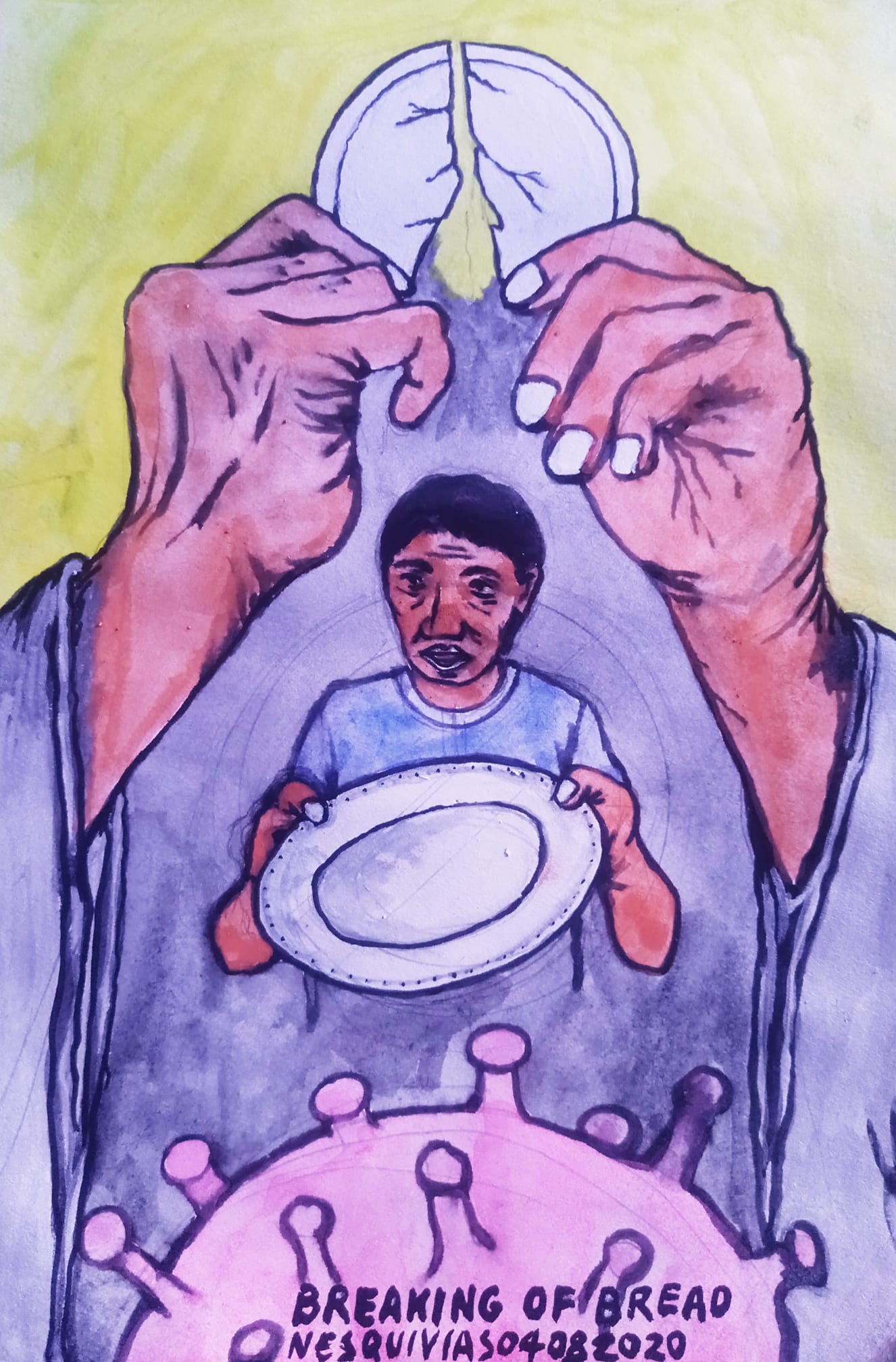
Tonight we begin the paschal triduum. Paschal Triduum also called Easter Triduum, Holy Triduum, or The Three Days. They are the most important three days in the liturgy of the Catholic Church. First of this triduum is the evening mass of the Lord ’s Supper this Holy Thursday. In this mass we commemorate the Lord’s celebration of the Passover with his disciples. Being a Jew, Jesus and his disciples knew fully well the special meaning of the Passover. The Passover is the most important feast for the Jews.
The Jews celebrate Passover through a family meal. Traditionally the youngest child ask the question at the beginning of the meal: “Why is this night so special? Why is this night so different from other nights?” There other questions that the child asks but clearly the questions are designed to relive and remember the Passover event—the story of the night of deliverance of the Israelites from Egyptian slavery.
Perhaps, during the Eucharist tonight we may ask why this night is so different from other nights. Why is this mass so different from other masses? Perhaps the most obvious reason what makes this mass special from other masses is the washing by the presider of the feet of 12 members of the community who represents the 12 disciples of Jesus. All of the four gospels records the last supper. However, only John’s gospel mentions the washing of the feet. And this is a radical addendum to the last supper narrative.
We can only understand the radicality of John’s washing of the feet nuance to the last supper account if we understand the meaning of foot washing. In Biblical times, the dusty and dirty conditions of the region and the wearing of sandals necessitated foot-washing. Foot-washing, however, was reserved for the lowliest of menial servants. Jesus, therefore, by washing the feet of his disciples has willingly done the work of the slaves.
When I was a seminarian, part of our apostolate was to visit the Tahanan in Tayuman, Tondo which is run by the Missionaries of Charity of Mother Theresa. Tahanan is home to the elderly sick and dying collected by the sisters mostly from the streets. The first time I came there I was shocked at what I saw: The sisters bathing the sick, washing their clothes which were often soaked in shit, feeding them and nursing their wounds. I just silently mumbled, “My God, this is the work of slaves.” Indeed, the sisters are truly living out the mandatum of Jesus in tonight’s gospel.
Jesus was no slave but did what slaves usually do–wash the feet of their masters. In the process, he freed his disciples out of slavery. Jesus was no victim but immersed himself into the life of the victims. In the process he liberated them so they may be victims no more.
Ironically, in our world today, we have masters but in reality they are slaves because they could not liberate others. They can only attract followers who are fellow captives. Their captivation with power, wealth, and control prevents them to experience genuine freedom and to inculcate true liberation to others.
This is the reason why Holy Thursday is called Maundy Thursday. The name is taken from the first few Latin words sung at the ceremony of the washing of the feet,
“Mandatum novum do vobis ut diligatis invicem sicut dilexi vos”
(“I give you a new commandment, That ye love one another as I have loved you” [John 13:34]).
Jesus reinterpreted the meaning of Passover by becoming the example of a servant to his disciples. True freedom and liberation begins by taking the form of a slave and serving others. At the beginning of the triduum, Jesus calls us to join him in his passing over from slavery to freedom. “I no longer call you slaves but friends.”

In this time of pandemic, we pray to Jesus to give us the strenght and the courage that we may passover this terrible malady that has fallen into our world. In this time of pandemic, the call to participate in Jesus’ passover becomes a greater calling as many people are dying, hungry and sick because of the virus. We can become true embodiment of the eucharist by our sharing of food and resources and reaching out to the most vulnerable in our society. We can truly follow Jesus’ mandatum of washing each other’s feet by our generous giving of ourselves even our lives, just as the frontliners have done, for the good of many.



